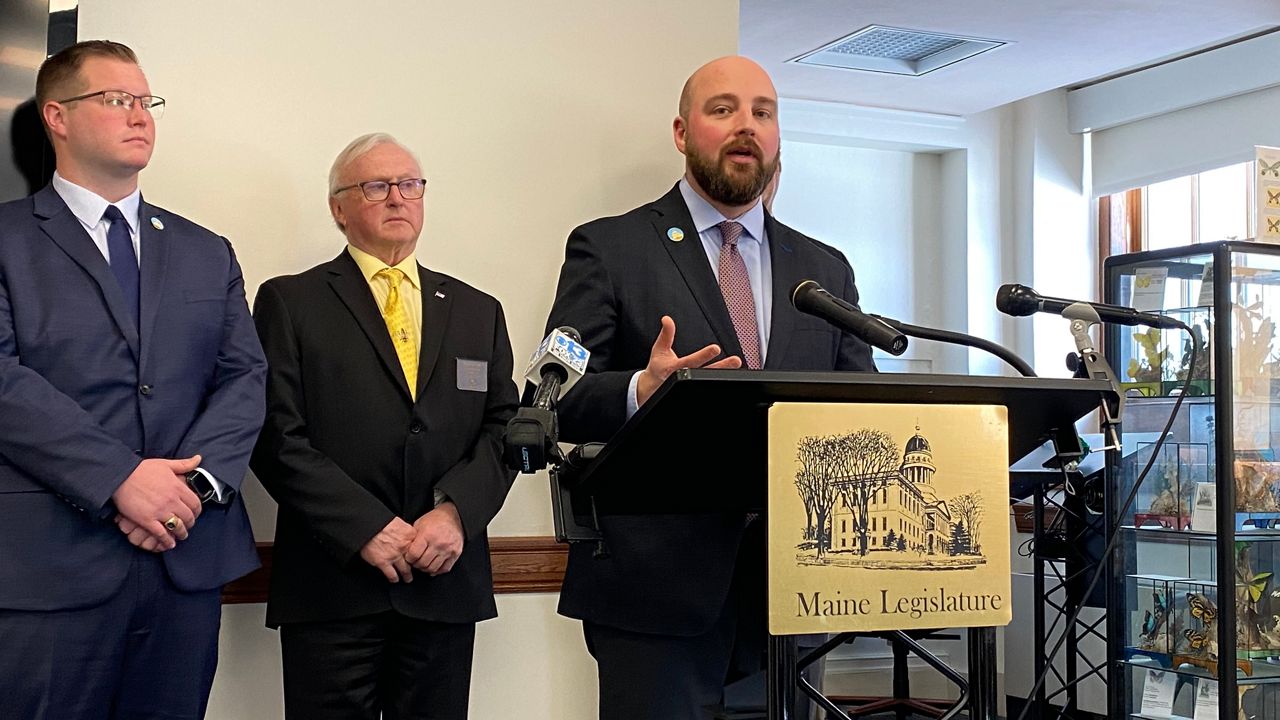A Democratic proposal to create a new paid family and medical leave program is expensive and extreme, Maine Republicans said Thursday.
Sen. Matt Pouliot (R-Augusta) said he and others want to work with Democrats on a scaled-back proposal that would be voluntary.
“They are attempting to utilize the one-party majority that they have at the State House to ram through a paid family medical leave bill that is just not something our state can afford,” he said.
The bill, LD 1964, seeks to create a new program that would require Maine employers with more than 15 employees to participate in a paid family and medical leave program.
The program would allow workers to take up to 12 weeks of paid leave to care for a newborn, a family member with a serious health condition, a foster child or a short list of other reasons.
It calls for up to a 1% payroll tax on wages split between employers and employees.
Sen. Stacey Guerin (R-Glenburn) said businesses are already struggling with high inflation and that neither employers nor employees can afford it.
In addition, businesses will have a hard time finding workers to replace those who are out on leave, she said.
“Maine small businesses are in a workforce crisis,” she said. “They can’t find enough workers. Who are they going to replace these missing workers with?”
Bill sponsor Sen. Mattie Daughtry (D-Brunswick) told fellow lawmakers last week that she’s made many modifications to the proposal but doesn’t believe that a voluntary program like the one in New Hampshire will work.
She said it’s a benefit Maine people need.
“Programs like this get people back to work,” she said. “A program like this incentivizes people to know that if the worst happens, they don’t have to decide between taking care of themselves or their loved one and being able to keep the lights on.”
Under the proposal approved by committee, the worker’s wages would be replaced at a tiered rate, based on their average weekly income.
Fourteen states have paid family leave programs, but their designs vary state by state.
A committee vote last week to advance the bill comes just weeks before advocates behind a citizen petition drive say they could turn in signatures to call for a public vote on a similar plan in 2024.
Absent legislative action by the end of the month, groups such as the Maine Women’s Lobby say they are ready to go to the ballot box.
Pouliot said lawmakers should not feel pushed into voting for Daughtry’s bill because they fear what might be approved by voters.
“One poorly passed law at referendum doesn’t mean it has to stay on the books,” he said. “What happens is we have a lot of policies then that need to be fixed or changed.”
This story was updated on June 9, 2023 to clarrify the explanation of benefit amounts.



